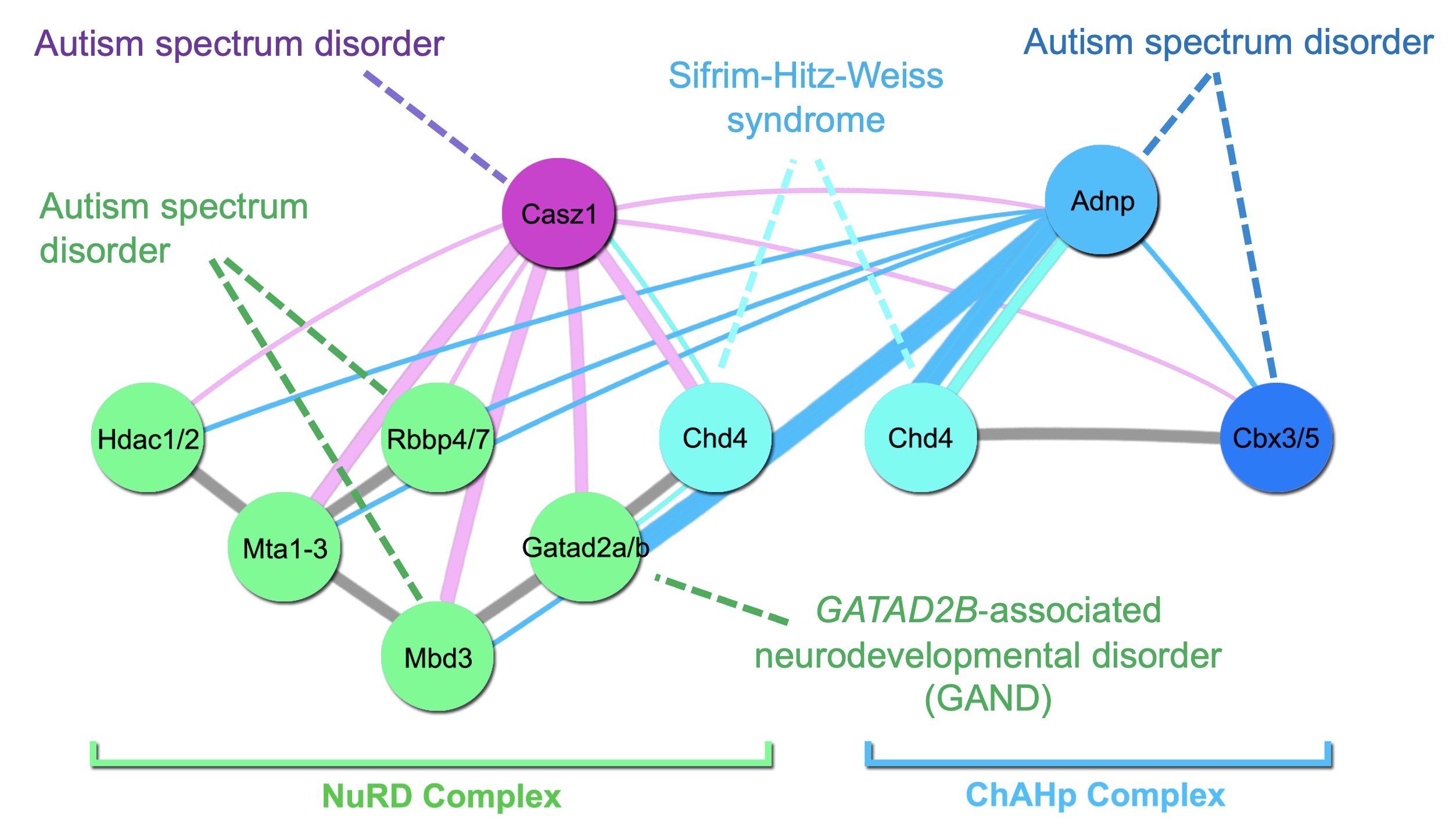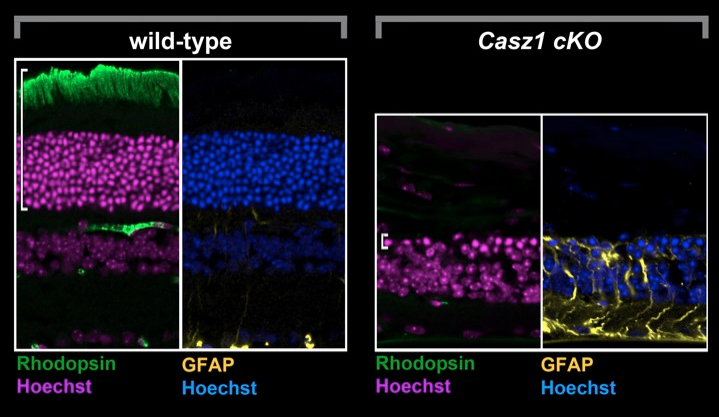Research Activities
Research projects:
1) Understanding how the developmental potential of retinal progenitors is controlled.
The remarkable cognitive abilities of the human brain depend on specialized circuits. These circuits in turn depend upon the developmental production of a constellation of different types of neurons. In the retina, more than 100 different types of neurons are generated by a single pool of neural progenitor cells. How do neural progenitor cells orchestrate the production of this complex cellular diversity?
The lab aims to decipher how changes in the developmental potential of retinal progenitors are controlled to diversify cell production from retinal progenitors, and to harness these processes so that desired cells can be produced efficiently. We are focused on unravelling how transcription factors and chromatin remodellers cooperate to control the development of retinal cell types.
2) Chromatin remodellers and neurodevelopmental disorders
Over the past 10-15 years, sequencing studies have revealed the genetic underpinnings of neurodevelopmental disorders. Across this genetic landscape, chromatin remodelling genes have emerged as one of the most important categories. We are focused on understanding how the NuRD and ChAHP chromatin remodelling complexes regulate neurodevelopment, and how these developmental processes are altered by genetic mutation.

3) Understanding the role of higher order nuclear organization in retinal cell death.
Photoreceptor cells are among the most energetically demanding cells in the body, and are particularly vulnerable to pathological insult. Indeed photoreceptor cell death underlies some of the most common forms of neurodegenerative disease, including age-related macular degeneration and retinitis pigmentosa. These disorders are associated with transcriptional dysregulation. We recently showed that rod photoreceptor nuclei undergo higher order genome reorganization in mouse models of retinitis pigmentosa. Our future goal is to decipher how genome regulation underlies adaptive and maladaptive genetic programs.
To learn more about the kind of work we do, click the "Technologies" tab on the left hand side of the page.
Age-dependent retinal degeneration in
Casz1 conditional mutant retinas (
PNAS 115: E7987).

